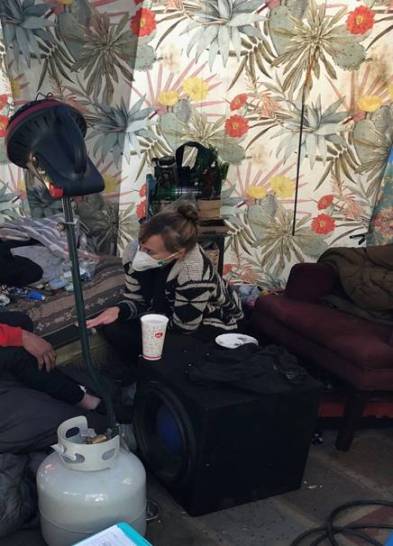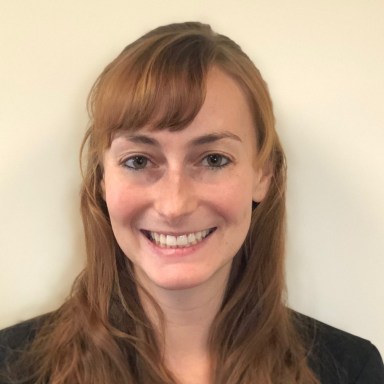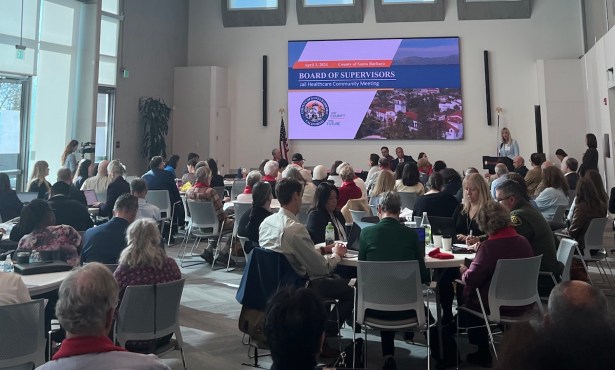Nursing in the Trenches
Breaking Down Barriers Through Health Care for People Without Homes

Nurses Week comes as a celebration of the mother of modern nursing, Florence Nightingale, by concluding on her birthday, May 12. Hers is the origin of the friendly face, caring for patients through the night, working tirelessly to alleviate their suffering. Nightingale made sanitation breakthroughs during the Crimean War of 1853–1856, but for Public Health nurses looking after patients in the modern trenches, they must sometimes do more to relate to their patients — like perform a rap duo.
Anna Rosen recalled the time she agreed to rap with a music-loving homeless client. After her debut performance, he agreed to let her help him.
“It’s all about building rapport and trust,” she said. “And it’s never a straight line from point A to B; it’s always a zigzag.”
Working in the field means coming up with creative solutions for unprecedented problems, and it can often take around 10 visits before clients are willing to accept services, said Rosen. As well, many clients have mental health issues, or a general distrust in the system, which makes it difficult for them to voice their needs.
It was the image of Florence Nightingale that caused Rose to fall in love with nursing when she was a 9-year-old Santa Barbara native. She read a series of books about kids with leukemia and became infatuated with medicine. “From that time on, I’ve known I wanted to be a nurse,” said Rosen. “It’s all I’ve ever wanted to do.”
After a decade in traditional clinical nursing, Rosen transitioned to field nursing about three years ago. Rosen’s work with the Santa Barbara Public Health Department’s “Healthcare for the Homeless” program makes one thing clear: Not all nurses work in a hospital and wear scrubs.
The program aims to bridge the gap in health-care accessibility for the homeless. Nurses visit encampments — building relationships with clients and matching them with the health-care services they need. Nurses provide transportation, as well as advocate for their clients’ needs during all appointments.
“These are hard things to do for yourself when you are worrying about your essential needs, like food, water, and housing,” said Rosen. Alongside medical assistance, the multidisciplinary program also works to connect clients with housing.
For Rosen, building a relationship with her clients and hearing their stories is one of the best parts of the job. Getting to know her clients helps Rosen know she’s making a difference. “It’s so rewarding to see them move from living on the street to housing, and know they are safe, healthy, and happy,” said Rosen.

However, it is this same empathy that Rosen cited as the source for the most difficult part of the job: Despite how badly she wants to, she can’t always help. “Sometimes there’s a limit to the services I can provide them. I want to help them, but we simply don’t have the resources we need.”
Rosen pointed out that Santa Barbara has no low-income assisted living, which makes it very difficult to house older clients with increased medical needs. For clients they are able to house, arrangements don’t always stick. “For many clients, it’s one step forward, two steps back,” explained Rosen. She has found that clients can be in a shelter, prepped and approved for surgery, but when it comes time for their operation, they have been exited from the shelter.
Yet for those whose needs are within provided services, Rosen has made an immense difference. One case that stuck with her was a man she met living at a park, who eventually moved to a shelter, and is now housed.
He called Rosen two weeks ago to let her know he’s officially cancer-free — thanks to her. Many of her clients lack the ability to express their gratitude for her services, but this particular client told Rosen he wanted 9-year-old Anna, who just wanted to make a difference, to know she had.
The impact of Rosen’s work as a nurse has gone beyond her clients to her personal life. When her now-fiancé was looking for a new job, she suggested he become a nurse. After graduating in December, he is now caring for patients at Cottage Hospital.




You must be logged in to post a comment.